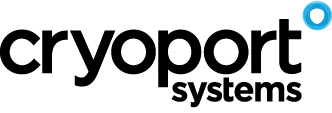
The highly pathogenic avian influenza (H5N1) virus is sweeping across the United States and affecting more than just poultry flocks and dairy cows. According to the CDC, there are 4 reported human cases in the United States as of May 29, 2024. While the symptoms are reportedly mild so far, the confirmed cases shouldn’t be taken lightly.
A robust biosecurity plan must be established and maintained throughout all operations to safeguard the health of animals and the professionals caring for them. We have organized an overview of what H5N1 is, the USDA’s recommendations for biosecurity, and how Cryoport Systems supports your biosecurity measures with every shipment.
H5N1's cross-country spread
While H5N1 is commonly referred to as a type of bird flu, the virus threatens other animals besides poultry. Currently, H5N1 has been confirmed in wild birds, dairy cows, and poultry. Erin Robinson, director of communications at the Texas Animal Health Commission, told AgricultureDive, “What we have seen in dairy cattle in Texas appears to be the same H5N1 strain in wild birds. While we aren’t 100% sure how this is transmitted to dairy cattle, it is something of note to mention.”
Texas isn’t the only state with affected cattle herds. As stated in that same article for AgricultureDive, H5N1 has been identified in herds across 9 different states. Initially, H5N1 was passed to cattle via infected wild birds. However, state and federal officials aren’t sure if the virus has since been transmitted from cow-to-cow.
Robinson remarked that while the Texas Animal Health Commission doesn’t have an answer for why the virus spreads to certain animals over others, they “are looking into the specifics to answer the question.”
Recommendations for a biosecurity plan
The prospect of a virus that can spread from poultry to livestock to humans is certainly frightening. However, the USDA recently published a list of recommendations for creating a biosecurity plan to prevent the spread of H5N1 across cattle herds. These specifications are meant to be added to one’s existing biosecurity plan to heighten coverage during this time.
The USDA’s list of recommendations includes specifics for:
- Monitoring sick animals
- The movement of cattle
- Worker (personnel) safety
- Unpasteurized milk and dairy products
- Waste management (including disposal)
Additionally, the CDC’s influenza webpage contains articles specific to preventing, monitoring, and responding to H5N1 outbreaks that can be influential in any animal health professional’s biosecurity plan.
One-of-a-kind support for biosecurity
Cryoport Systems is dedicated to ensuring that our support for your biosecurity plan is in line with the highest standards of compliance. According to Secure Milk Supply, biosecurity extends to the transport of sensitive materials from farms to facilities in reusable, temperature-controlled dewars or shippers. Maintaining the cleanliness of both the exterior and interior of the shippers is vital to this effort. If shippers are not properly cleaned after transit, sensitive materials could be placed into contaminated shippers, threatening the integrity of the contents.
Cryoport System’s Veri-Clean® validated cleaning and disinfection process is the only of its kind within the animal health industry. This process virtually eliminates the risk of cross-contamination by decontaminating all Cryoport Express® shippers and stainless-steel accessories after every use. Veri-Clean® utilizes a multi-purpose reagent effective against bacteria, fungi, and viruses such as H5N1.
With support from a third-party accredited laboratory, Veri-Clean® cleaning and disinfection procedures:
- Reduce external contaminants by 99.9999%
- Result in a 6-log drop of tested biological indicators
- Reliably verifies that no environmental flora is present
- Manually confirms the shipper is free from protein and hemoglobin
Our Veri-Clean® process is the most effective way to improve your biosecurity plan and safeguard your livestock.
For more information about Cryoport Systems’ support of your animal health material transport journey, contact Cryoport Systems’ animal health expert, Tony Thomas, at tthomas@cryoport.com.
